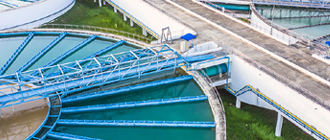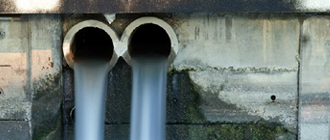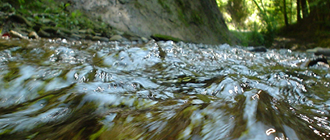All local authorities are concerned by water quality, from metropolises to urban communities and communities of communes.
They carry out the main tasks related to the management of the water cycle, either on their own or by delegation:
- Drinking water distribution
- Wastewater treatment
- Urban rainwater management
- Management of aquatic environments (GEMA-PI)
Although these missions are essentially the competence of these communities, the departments, the regions, and the state also intervene in water management, by supporting in different ways these local initiatives.
The management of water resources and aquatic environments is therefore at the heart of the challenges facing local authorities:
- Ensuring the quality of drinking water
- Guaranteeing the safety of natural waters
- Monitoring and protecting aquatic environments and their biodiversity
- Checking the efficiency of wastewater treatment plants (WWTP)
Community issues
User health safety
Whether for agricultural or industrial activities or for human consumption, drinking water is a vital resource. This is why local authorities, already subject to strict standards, are seeking to protect users even more in a context of changing water pollution.
Indeed, our waters are increasingly polluted by emerging micropollutants such as drugs, pesticides, microplastics, etc. This encourages local authorities to go beyond the current regulations by carrying out additional analyses.
Protection of the richness of the territory
Aquatic environments and wetlands are real assets for the territories. They contribute to the beauty of the landscape, to tourism, but not only, because they also provide many vital services to the ecosystems of which we are a part: self-purification, groundwater recharge, flood regulation, protection of environmental biodiversity ...

Thus to protect these environments makes it possible at the same time to control the water resource for these users, but also to contribute to the maintenance of our quality of life.
Economy of the water resource
Because of its scarcity, water is at the heart of conflicts of use. Preserving this resource is at the heart of the challenges facing communities.
To be able to meet the needs of farmers, industrialists, but also citizens and their consumption, communities must innovate in order to anticipate the water shortages that concern us all. This is why more and more "REUT" projects are currently being developed, with the aim of rethinking users and limiting waste.
However, these growing initiatives require more controls and assurance to be sure of the quality of the water at all stages of the process.
Tame-Water's contribution
Tame-Water has analytical solutions to meet the new challenges of communities. Based on living organisms, these bioassays aim to evaluate the toxicity of water by scanning a wide spectrum of micropollutants:
- heavy metals,
- pesticides,
- hydrocarbons,
- endocrine disruptors,
- drug residues,
- microplastics,
- cocktail effects.
Although water is highly controlled in France, the increase and diversity of pollutants identified by the dedicated organizations encourage communities to conduct more in-depth analysis than those imposed by current regulations.
Tame-Water is able to provide a relevant complementary analysis for communities wishing to establish an ecotoxic diagnosis of their drinking water, natural, discharge in order to ensure monitoring, to implement preventive actions.
These communities are thus able to better control the quality of their water, to anticipate regulatory changes and to promote their environmental approaches to their users.











